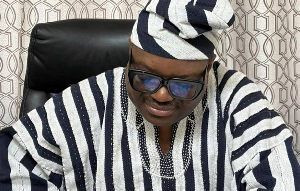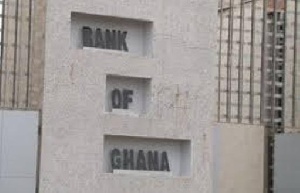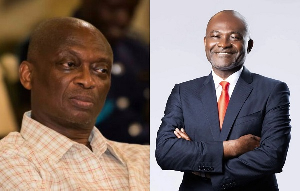The Monetary Policy Committee of the Central Bank of Ghana (BoG) is widely expected to loosen its tight monetary stance, after inflation trended downwards for the fifth consecutive time and the local currency maintained a steady performance against the US dollar.
Inflation, has since October last year, fallen consistently from 15.8 percent to 13.2 percent as at last month and is further projected to continue its downward trend after petroleum prices fell marginally, following the scrapping of some taxes in the price build-up.
The petroleum prices, which provide principal inflationary pressures, are expected to fall further in the next pricing window as the local currency, which had depreciated 8.6 percent as at March 10, recovered from its decline to record a year-to-date depreciation of 4.8 percent.
The BoG has continued to use its monetary policy as an inflation targeting tool to shoot down rising inflation but with inflation trending downwards and the softening of inflationary pressures, Peter Nii Odoi Charway, Head of Research & Strategy at Ideal Capital Partners, is confident the policy rate will be reduced.
The policy rate, which is the indicative rate the BoG lends to commercial banks, currently stands at 25.5 percent and was last reduced by 50 basis points in November last year despite calls for further reduction which have not been met.
According to Mr. Charway: “The MPR should be reduced to boost business activities through a corresponding reduction of lending rates by the commercial banks. A reduction will be consistent with the philosophy of a private sector-led growth of the economy. A reduction by much is entirely up to the MPC to decide, but it should be significant to boost business activities.”
Also making a case for a reduction of the policy rate, GN Research said: “Given the falling inflation trends, the performance of the cedi especially during 3rd week in March following the auctioning of the US$120 million and the issuance of the bond, the upsurge in investor confidence and the general positive outlook for the economy, the Bank of Ghana is likely to reduce the monetary policy rate to complement government’s efforts.”
Today’s meeting will be the 75th regular meeting of the MPC since the BOG’s introduction of the policy rate as a central policy tool for its inflation targeting regime in 2002.
At the last MPC meeting in January, the committee held the rate at 25.5 percent amid calls by the business community for a lower rate because of the negative effects of the high rate on the domestic economy.
The MPC had explained that, though headline and core inflation have been declining coupled with a strong external sector performance, concerns about positive inflation outlook due to pass-through effect of the cedi depreciation resulted in balanced inflation risks and growth, hence the decision to maintain the policy rate.
Business News of Monday, 27 March 2017
Source: thebftonline.com
BoG expected to cut policy rate
Entertainment

Chez Amis CEO addresses NACOC arrest allegations
Opinions










